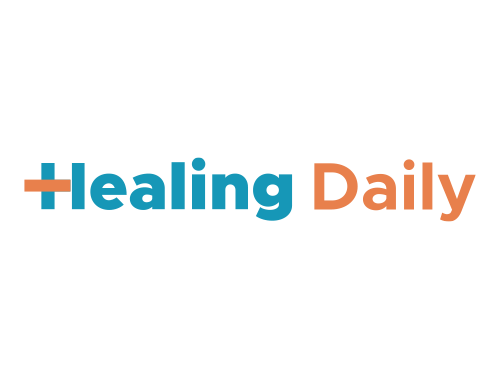Your heart is perhaps the most important organ in your body. Heart health should be everyone’s priority to live a healthy life. If you are worried that your heart is weak, keep reading.
We’ve put together several tips on how to strengthen a weak heart. Even if you think you have a healthy heart, keep reading to ensure you are doing everything you can to stay healthy!
Tip #1: Know your personal risk factors for heart disease
We all have different risk factors for heart disease. Which risk factors do you have (see below)?
- Diabetes
- High blood pressure – Want to learn how to lower your blood pressure? See our blood pressure guide.
- High cholesterol
- Obesity
- High alcohol consumption (1+ drink per day for women; 2+ drinks per day for men)
- Physical inactivity
- Unhealthy diet than is high in saturated fat, sodium, trans fat and cholesterol
- Tobacco usage
- Family history of heart-related conditions
- Increasing age
Be sure to talk about these risk factors at your next doctor’s appointment.
Tip #2: Don’t miss your appointments
You may think that you are perfectly healthy until you get a report back from your doctor. Many people avoid going to the doctor because they fear knowing what’s wrong with them. However, knowledge is power! Everyone young and old should have regular check-ups with their doctor so that issues can be treated early. Just because you “feel fine,” doesn’t mean you are fine!
As with most diseases, the longer you wait to treat heart disease, the worse it can get. Luckily there are things you can do to help a weak heart early on, but you have to see your doctor. If you are nervous to get tested for heart conditions, bring a family member or close friend. Having someone with you at the doctor’s office can comfort you.
Tip #3: Take all medications as prescribed
Your doctor prescribes you medication for a reason, so take all your medications. If you have a weak heart, you may be prioritizing heart medications, however, make sure you take medications to manage other conditions.
As mentioned in Tip #1, other conditions like diabetes and high blood pressure can have an effect on your heart. We recommend that you organize your medications with this monthly pill organizer. It even has reminders to take your pills!
Tip #4: Watch your weight
Obesity is another risk factor for heart disease, so it is essential that you maintain or achieve a healthy weight. Your doctor or registered dietitian will be able to determine a healthy weight for you. Even losing a small portion of your weight can have health benefits.
Not sure what your weight is or how much you need to lose to reach your goal weight? Consider this bathroom scale with Bluetooth connectivity. This particular scale allows you track your weight and pair it with popular fitness apps.
Tip #5: Get enough exercise
It is recommended that adults get at least 150 minutes of moderate-intensity exercise per week. This can include walking, jogging, using cardio machines or taking an aerobics class. However, if you have certain heart conditions, be sure to ask your doctor what types of exercise are right for you. You can put yourself in danger if you don’t follow your doctor’s exercise guidelines. If you are able to engage in cardio exercise, ask your doctor about using our favorite home elliptical machine.
Tip #6: Eat a heart-healthy diet
Here are some tips on how to make your diet more heart healthy:
- Consume lots of fresh fruits, veggies and whole grains
- Get most of your fat from healthy oils (i.e. olive, grapeseed, canola)
- Snack on nuts and seeds
- Get multiple servings of healthy, fatty fish (i.e. salmon, tuna)
- Choose nonfat or lowfat milk, yogurt and cheese
- Choose lean proteins like legumes and lean poultry
Tip #7: Know your numbers
There are several tests and numbers to keep in mind when it comes to heart health. Check out this handy heart health chart below. If you forget to ask about these, however, don’t worry! Your doctors and nurses tend to check these whenever you come into the clinic.
Key Measurements for Heart Health
[table “23” not found /]
Tip #8: Quit smoking
This may not be the first time you have been advised to quit smoking, but here is something to think about: Yes, smoking can put you at increased risk of heart disease, but it can also increase the risk of heart disease in the people you love.
According to the CDC, secondhand smoke can increase a non-smoker’s risk of heart disease by 25-30%. Every year, 34,000 non-smokers die from heart disease caused by secondhand smoke (1). So, if you’re not ready to give up smoking for your own heart health, do it for the people around you.
Tip #9: Check for fluid build-up
Some people have fluid retention due to health conditions such as heart failure or inadequate kidney function. For those with heart failure, having fluid build-up can put extra stress on a weakened heart. One place to check for fluid is in your ankles.
To do a quick check, firmly press two fingers into the skin around your ankle. If your fingers leave an imprint, then you may have fluid build-up. Call your doctor if you think you have fluid build-up. Once confirmed by your doctor, ask to see a registered dietitian to learn how to control your sodium intake. Click here to learn more about how to flush salt and sodium out of your body.
Tip #10: Know the signs of an emergency
Those with heart-related conditions may be at increased risk of a heart attack or stroke. Take a snapshot of the chart below and keep it handy in case you or someone you are with is showing signs of a heart attack or stroke. Doing so can save someone’s life!
If you see any of the signs below, call 911 immediately.
[table “24” not found /]









